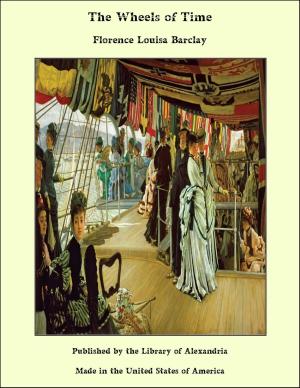| Author: | Various Authors | ISBN: | 9781465508744 |
| Publisher: | Library of Alexandria | Publication: | March 8, 2015 |
| Imprint: | Language: | English |
| Author: | Various Authors |
| ISBN: | 9781465508744 |
| Publisher: | Library of Alexandria |
| Publication: | March 8, 2015 |
| Imprint: | |
| Language: | English |
IT had been my habit, I am now aware, to speak somewhat lightly of the labors of anthologists: to insinuate that they led lives of bland sedentary ease. I shall not do so again. When the publisher suggested a collection of representative contemporary essays, I thought it would be the most lenient of tasks. But experience is a fine aperitive to the mind. Indeed the pangs of the anthologist, if he has conscience, are burdensome. There are so many considerations to be tenderly weighed; personal taste must sometimes be set aside in view of the general plan; for every item chosen half a dozen will have been affectionately conned and sifted; and perhaps some favorite pieces will be denied because the authors have reasons for withholding permission. It would be enjoyable (for me, at any rate) to write an essay on the things I have lingered over with intent to include them in this little book, but have finally sacrificed for one reason or another. How many times—twenty at least—I have taken down from my shelf Mr. Chesterton's The Victorian Age in Literature to reconsider whether his ten pages on Dickens, or his glorious summing-up of Decadents and Æsthetes, were not absolutely essential. How many times I have palpitated upon certain passages in The Education of Henry Adams and in Mr. Wells's Outline of History, which, I assured myself, would legitimately stand as essays if shrewdly excerpted. But I usually concluded that would not be quite fair. I have not been overscrupulous in this matter, for the essay is a mood rather than a form; the frontier between the essay and the short story is as imperceptible as is at present the once famous Mason and Dixon line. Indeed, in that pleasant lowland country between the two empires lie (to my way of thinking) some of the most fertile fields of prose—fiction that expresses feeling and character and setting rather than action and plot; fiction beautifully ripened by the lingering mild sunshine of the essayist's mood. This is fiction, I might add, extremely unlikely to get into the movies. I think of short stories such as George Gissing's, in that too little known volume The House of Cobwebs, which I read again and again at midnight with unfailing delight; fall asleep over; forget; and again re-read with undiminished satisfaction. They have no brilliance of phrase, no smart surprises, no worked-up 'situations' which have to be taken at high speed to pass without breakdown over their brittle bridgework of credibility. They have only the modest and faintly melancholy savor of life itself. Yet it is a mere quibble to pretend that the essay does not have easily recognizable manners. It may be severely planned, or it may ramble in ungirdled mood, but it has its own point of view that marks it from the short story proper, or the merely personal memoir. That distinction, easily felt by the sensitive reader, is not readily expressible. Perhaps the true meaning of the word essay—an attempt—gives a clue. No matter how personal or trifling the topic may be, there is always a tendency to generalize, to walk round the subject or the experience, and view it from several vantages; instead of (as in the short story) cutting a carefully landscaped path through a chosen tract of human complication. So an essay can never be more than an attempt, for it is an excursion into the endless. Any student of fiction will admit that in the composition of a short story many entertaining and valuable elaborations may rise in the mind of the author which must be strictly rejected because they do not forward the essential motive. But in the essay (of an informal sort) we ask not relevance to plot, but relevance to mood. That is why there are so many essays that are mere marking time. The familiar essay is easier to write than the short story, but it imposes equal restraints on a scrupulous author. For in fiction the writer is controlled and limited and swept along by his material; but in the essay, the writer rides his pen. A good story, once clearly conceived, almost writes itself; but essays are written
IT had been my habit, I am now aware, to speak somewhat lightly of the labors of anthologists: to insinuate that they led lives of bland sedentary ease. I shall not do so again. When the publisher suggested a collection of representative contemporary essays, I thought it would be the most lenient of tasks. But experience is a fine aperitive to the mind. Indeed the pangs of the anthologist, if he has conscience, are burdensome. There are so many considerations to be tenderly weighed; personal taste must sometimes be set aside in view of the general plan; for every item chosen half a dozen will have been affectionately conned and sifted; and perhaps some favorite pieces will be denied because the authors have reasons for withholding permission. It would be enjoyable (for me, at any rate) to write an essay on the things I have lingered over with intent to include them in this little book, but have finally sacrificed for one reason or another. How many times—twenty at least—I have taken down from my shelf Mr. Chesterton's The Victorian Age in Literature to reconsider whether his ten pages on Dickens, or his glorious summing-up of Decadents and Æsthetes, were not absolutely essential. How many times I have palpitated upon certain passages in The Education of Henry Adams and in Mr. Wells's Outline of History, which, I assured myself, would legitimately stand as essays if shrewdly excerpted. But I usually concluded that would not be quite fair. I have not been overscrupulous in this matter, for the essay is a mood rather than a form; the frontier between the essay and the short story is as imperceptible as is at present the once famous Mason and Dixon line. Indeed, in that pleasant lowland country between the two empires lie (to my way of thinking) some of the most fertile fields of prose—fiction that expresses feeling and character and setting rather than action and plot; fiction beautifully ripened by the lingering mild sunshine of the essayist's mood. This is fiction, I might add, extremely unlikely to get into the movies. I think of short stories such as George Gissing's, in that too little known volume The House of Cobwebs, which I read again and again at midnight with unfailing delight; fall asleep over; forget; and again re-read with undiminished satisfaction. They have no brilliance of phrase, no smart surprises, no worked-up 'situations' which have to be taken at high speed to pass without breakdown over their brittle bridgework of credibility. They have only the modest and faintly melancholy savor of life itself. Yet it is a mere quibble to pretend that the essay does not have easily recognizable manners. It may be severely planned, or it may ramble in ungirdled mood, but it has its own point of view that marks it from the short story proper, or the merely personal memoir. That distinction, easily felt by the sensitive reader, is not readily expressible. Perhaps the true meaning of the word essay—an attempt—gives a clue. No matter how personal or trifling the topic may be, there is always a tendency to generalize, to walk round the subject or the experience, and view it from several vantages; instead of (as in the short story) cutting a carefully landscaped path through a chosen tract of human complication. So an essay can never be more than an attempt, for it is an excursion into the endless. Any student of fiction will admit that in the composition of a short story many entertaining and valuable elaborations may rise in the mind of the author which must be strictly rejected because they do not forward the essential motive. But in the essay (of an informal sort) we ask not relevance to plot, but relevance to mood. That is why there are so many essays that are mere marking time. The familiar essay is easier to write than the short story, but it imposes equal restraints on a scrupulous author. For in fiction the writer is controlled and limited and swept along by his material; but in the essay, the writer rides his pen. A good story, once clearly conceived, almost writes itself; but essays are written















